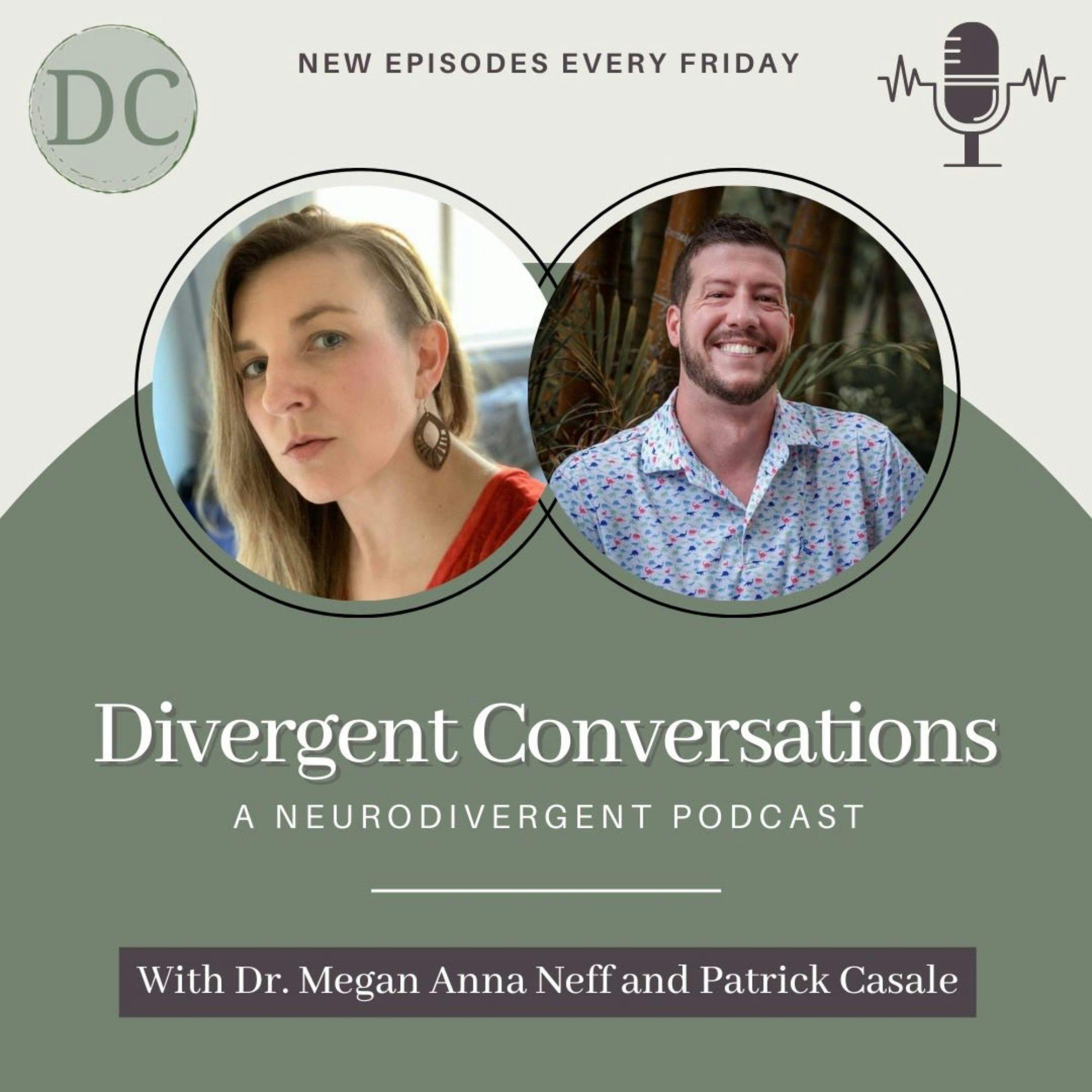Rethinking Parenting: Supporting Gender Diverse and Neurodivergent Youth
Description
When parenting a neurodivergent child or young adult, traditional approaches don't always fit. Balancing the unique needs with the world's expectations can feel isolating and overwhelming.
In this episode, Patrick Casale and Dr. Neff, two AuDHD mental health professionals, speak with Lisa Dube, LCSW and founder of Merrimack River Wellness, about the nuances of parenting, supporting, and understanding neurodivergent children, particularly those exploring their gender identity.
Top 3 reasons to listen to the entire episode:
Understand how to recognize and support the fight, flight, freeze, and fawn responses in neurodivergent children, helping you to interpret their behaviors through a more informed and empathetic lens.
Gain insights into the intersection of gender identity and neurodivergence, encouraging a curious and non-judgmental approach to parenting that embraces and respects your child's identity exploration.
Discover practical advice on avoiding the "failure to launch" stereotype and fostering an environment of interdependence through "scaffolding,” particularly useful for parents of neurodivergent young adults.
Reflect on how to bring these strategies into your family dynamics to strengthen the bond with your child. Consider how your parenting approach can evolve to actively enrich the journey of raising a neurodivergent child.
About Lisa Dube
Lisa is a neurodivergent LCSW who worked for the U.S. District Court for over 20 years as a treatment specialist before establishing a private practice focused on the needs of families and individuals navigating gender identity exploration and transition. Lisa has a special interest in supporting parents in developing new narratives and ways of connecting with their young adult autistic children who may be challenged with the transition to adulthood.
Website: merrimackriverwellness.com
Instagram: @merrimackriverwellness
——————————————————————————————————
🎙️Listen to more episodes of the Divergent Conversations Podcast here
🎙️Spotify
🎙️Apple
🎙️YouTube Music
▶️ YouTube
——————————————————————————————————
A Thanks to Our Sponsors: Madam Clutterbuckets Neurodiverse Universe, Freed, & The Receptionist for iPad
✨ Madam Clutterbuckets Neurodiverse Universe:
I want to thank Madam Clutterbuckets for sponsoring this episode.
This family-owned business has created a store that not only celebrates the value of neurodiversity but also employs neurodivergent workers. They sell disability advocacy merchandise, work from neurodivergent artists, and products from companies that employ neurodivergent workers. They also have curated vintage oddities, fidgets, and outrageous merch that makes you laugh out loud. They are located in downtown Asheville, North Carolina, or you can check them out at madamclutterbuckets.com, and use code GIMME10 for 10% off $25 purchases or more.
✨ Freed:
I want to thank Freed for sponsoring this episode.
Being a clinician in today's medical or mental healthcare field can be overstimulating. It can be so hard to focus on clients while taking adequate notes. Freed.AI listens, transcribes, and writes medical documentation for you, written in your style and ready the moment the visit is over—no more overstimulation or letting things fall through the cracks. Freed is HIPAA compliant, secure, and takes less than 30 seconds to learn. More importantly, Freed supports your executive function skills, so you can get back to doing what you love—helping your clients.
Go to getfreed.ai and use code DCPOD for your first month free.
✨ The Receptionist for iPad:
I want to thank The Receptionist for iPad for sponsoring this episode.
The Receptionist offers an iPad list check-in option where clients can scan a QR code to check in, which negates the need for you to buy an iPad and stand. Go to
More Episodes
ADHD often brings unique challenges with impulsive behaviors which can make everyday interactions and tasks more complex. In an attempt to better understand the ways ADHD can present in daily life, this episode uses the DSM-5 diagnostic criteria as a framework for discussion—this is not an...
Published 06/14/24
Published 06/14/24
ADHD hyperactive traits are often misunderstood and the DSM-5’s portrayal of this type is heavily geared toward children and adolescents, which can make it harder to understand and address in adulthood. In an attempt to better understand the ways ADHD can present in daily life, this episode uses...
Published 06/07/24


